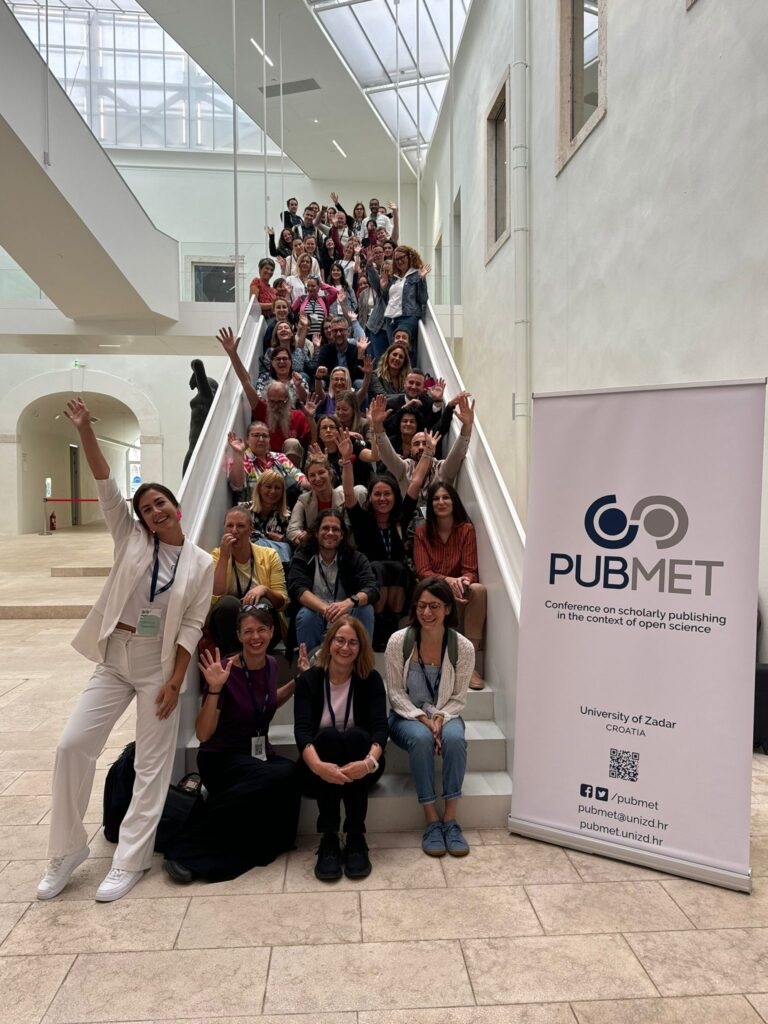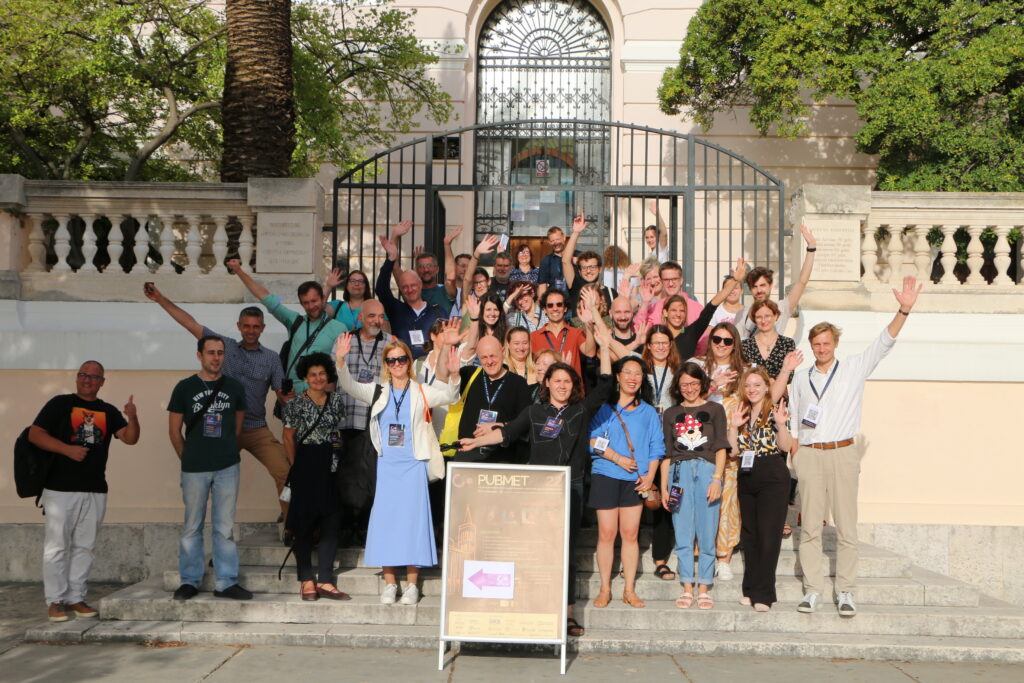Whether you couldn’t attend the conference or simply want to re-watch your favorite talks, our video archive has got you covered. Check out the recordings on our YouTube channel!
Download it now using the email address you registered with.
Check out the gallery, feel free to add your own memories and share the experience with others.


Since the PUBMET conference has grown, we decided to offer our participants the opportunity to learn about current topics related to the quality of scholarly communication in the first Summer School on Scholarly Communication, followed by the PUBMET2024 conference.
10-12 september 2024
Join us at our inaugural Summer School, planned as a pre-conference event for PUBMET2024, where we will delve into the most critical topics shaping the dynamic landscape of scholarly communication. This three-day program promises a deep insight into emerging trends and practices.

Université Laval

Institute of Literary Research, Polish Academy of Sciences

Faculty of Humanities and Social Sciences

Taras Shevchenko National University in Kyiv

Institute of Technical Sciences, Serbian Academy of Sciences and Arts

Universitat de Barcelona
Address: Šime Vitasovića 1
12-13 september 2024
Following the Summer School, this year’s PUBMET2024 Conference will explore the core of open scholarly communication by focusing on the central theme of research assessment. We invite participants to examine the challenges ingrained in this process, including openness and transparency, bias mitigation, robustness, cost-effectiveness, and efficiency optimisation. Moreover, we aim to continue discussions on enhancing the peer review process, encompassing reviewer diversity, role clarification, capacity building, and technological advancements.
Ensuring integrity in assessment practices remains essential in this era of rapidly evolving research landscapes. PUBMET2024 seeks to address the ethical dimensions of research assessment, emphasising the recognition of diverse scientific outputs and advocating for the responsible utilisation of proxies and metrics. We recognise the value of content-based evaluation methodologies while supporting transformative initiatives that propel scholarly communication towards greater inclusivity and efficacy.

Sesame Open Science

Adam Mickiewicz University

Centre Marc Bloch
Address: Petra Zoranića 1, 23000, Zadar, Croatia
Dive into our the gallery featuring highlights from last year’s conference. Relive the moments through photos and insights that showcase the energy and key takeaways of the event. Whether you’re revisiting memories or catching up on what you missed, our gallery is your window into the experience.
It is with deep sadness that we inform you of the passing of our dear colleague and friend, Dr. Sc. Vladimir Mrša, Professor Emeritus at the Faculty of Food Technology and Biotechnology at the University of Zagreb, and a long-time member of the Organising and Programme committees for PUBMET.
As a distinguished professor and a respected figure in the scientific community, Dr. Mrša made significant contributions as an outstanding scientist and an advocate of open science. Above all, he was a dear friend and colleague who mentored generations of young scientists and experts, helping them find their own way.
We are committed to honoring his legacy by striving for excellence in scientific research and continuing to promote open science, just as he believed in and supported us to do. He will always remain in our hearts.
